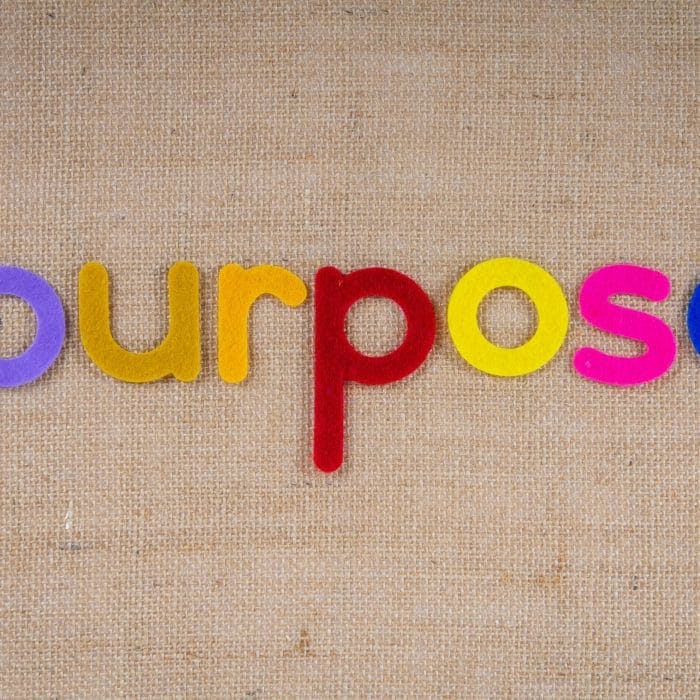If you’re curious to know what purpose is and how you or a loved one can get it or discover it, you’re not alone. The topic has grabbed the attention of everyone from psychologists to HR managers, making a splash in self-help books and influencing corporate recruitment practices. And why not? Cultivating a sense of purpose early in life is a powerful way to support long-term psychological and biological health, even at the genomic level.
Pursuit of purpose
Last week, Echoing Green—a nonprofit best known for sourcing and supporting social entrepreneurs—hosted the world’s first 360 degree review of a burgeoning, new field dedicated to purpose. Thought leaders from different sectors—ranging from business and religion, to higher education, and beyond—gathered at the event to map the emerging field of purpose and identify themes and opportunities for future exploration. I attended with avid curiosity, feeling on the edge of a social movement.
There is emerging consensus: Purpose is a way of living, a north star, a steady goal that’s meaningful to an individual yet, importantly, reaches out into the world.
Finding what is right for you and right for the world has long-term health benefits. So how might we help teens and young adults find theirs as they explore their way into adulthood? It seems like such a noble yet daunting goal, even for ourselves.
Here are a few ways you can encourage the development of a purposeful life among kids, whether you’re a parent, mentor or a friend.
1. Ask questions, listen deeply
While friends, hobbies, and interests may change, there are deeper patterns to what enlivens us. But it’s tough for a teen or young adult to recognize those patterns in themselves. Ask big bold questions and listen deeply to their answers: What would you change about the world if you knew you could not fail? What makes your heart sing? Encourage kids to find opportunities for stillness in their lives (i.e., hiking, cooking, journaling, worshipping, etc.) so they can wrestle with those big questions and begin answering them, slowly, over time.
2. Just do it
Doing is often a fantastic path to purpose. Especially for kids who are starting out in life. They cannot be expected to think or reason their way to a meaningful path. They have to live their way on to it. Do first, reflect second. By behaving as though they hold a particular purpose, teens and young adults can try, fail, and learn from life, while envisioning what that future looks and feels like from the inside out.
3. Disrupt tradition
Just as we can mindlessly drive a car, we can mindlessly live our lives. Encourage teens and young adults to break their routines in ways that expand their perspective: Volunteer at a national park or a retirement home; study abroad for a year; join a summer program. By immersing themselves in new experiences, teens and young adults snap out of their routines and discover new ways to engage the world and discover themselves.
4. Get out of the way
Parents are great at many things – including putting many well-intentioned roadblocks in their children’s way. Love and worry are powerful drivers of adult behavior. But at the end of the day, there’s only one person who will make your child’s decisions for the rest of their lives. And it’s not you. So kindly get out of the way. Let them try, fail, and learn, with you nearby for support.
5. Don’t confuse purpose with happiness
Happiness is sometimes about feeling good, like when I buy a new dress. But feeling good in the moment isn’t the same thing as the satisfaction that comes from leading a deeply meaningful life. A purposeful life can be profoundly gratifying without always being pleasant. No one wants their child to suffer, but learning to successfully navigate life’s challenges can be deeply rewarding in ways that a rush of happiness is not.
If you’re curious to know what purpose is and how you or a loved one can get it or discover it, you’re not alone. The topic has grabbed the attention of everyone from psychologists to HR managers, making a splash in self-help books and influencing corporate recruitment practices. And why not? Cultivating a sense of purpose early in life is a powerful way to support long-term psychological and biological health, even at the genomic level.
Pursuit of purpose
Last week, Echoing Green—a nonprofit best known for sourcing and supporting social entrepreneurs—hosted the world’s first 360 degree review of a burgeoning, new field dedicated to purpose. Thought leaders from different sectors—ranging from business and religion, to higher education, and beyond—gathered at the event to map the emerging field of purpose and identify themes and opportunities for future exploration. I attended with avid curiosity, feeling on the edge of a social movement.
There is emerging consensus: Purpose is a way of living, a north star, a steady goal that’s meaningful to an individual yet, importantly, reaches out into the world.
Finding what is right for you and right for the world has long-term health benefits. So how might we help teens and young adults find theirs as they explore their way into adulthood? It seems like such a noble yet daunting goal, even for ourselves.
Here are a few ways you can encourage the development of a purposeful life among kids, whether you’re a parent, mentor or a friend.
- Ask questions, listen deeply
While friends, hobbies, and interests may change, there are deeper patterns to what enlivens us. But it’s tough for a teen or young adult to recognize those patterns in themselves. Ask big bold questions and listen deeply to their answers: What would you change about the world if you knew you could not fail? What makes your heart sing? Encourage kids to find opportunities for stillness in their lives (i.e., hiking, cooking, journaling, worshipping, etc.) so they can wrestle with those big questions and begin answering them, slowly, over time.
- Just do it
Doing is often a fantastic path to purpose. Especially for kids who are starting out in life. They cannot be expected to think or reason their way to a meaningful path. They have to live their way on to it. Do first, reflect second. By behaving as though they hold a particular purpose, teens and young adults can try, fail, and learn from life, while envisioning what that future looks and feels like from the inside out.
- Disrupt tradition
Just as we can mindlessly drive a car, we can mindlessly live our lives. Encourage teens and young adults to break their routines in ways that expand their perspective: Volunteer at a national park or a retirement home; study abroad for a year; join a summer program. By immersing themselves in new experiences, teens and young adults snap out of their routines and discover new ways to engage the world and discover themselves.
- Get out of the way
Parents are great at many things – including putting many well-intentioned roadblocks in their children’s way. Love and worry are powerful drivers of adult behavior. But at the end of the day, there’s only one person who will make your child’s decisions for the rest of their lives. And it’s not you. So kindly get out of the way. Let them try, fail, and learn, with you nearby for support.
- Don’t confuse purpose with happiness
Happiness is sometimes about feeling good, like when I buy a new dress. But feeling good in the moment isn’t the same thing as the satisfaction that comes from leading a deeply meaningful life. A purposeful life can be profoundly gratifying without always being pleasant. No one wants their child to suffer, but learning to successfully navigate life’s challenges can be deeply rewarding in ways that a rush of happiness is not.




